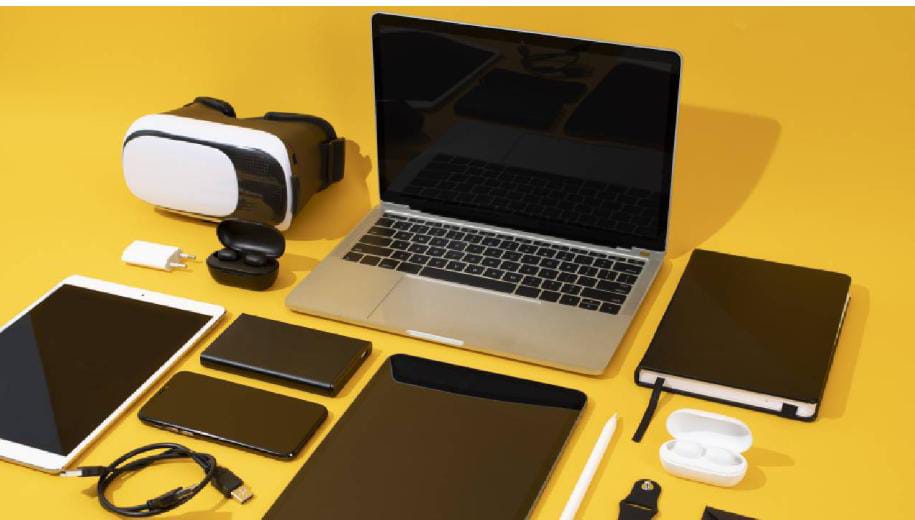
Apple
In today’s fast-moving tech world, Apple keeps releasing new devices, each packed with promises of better features and performance. If you’re an Apple user or thinking about getting one, you might ask yourself: Is it really worth upgrading to the latest iPhone? Let’s break it down and see what makes sense.
What’s New in the Latest iPhone?
Apple’s newest lineup, including the iPhone 16 series, comes with several exciting upgrades:
- A18 Bionic Chip – This powerful chip gives you a 30% speed boost and better energy efficiency, meaning faster performance and longer battery life.
- Apple Intelligence – Apple’s latest AI-powered features help organize your notifications, draft emails, and improve overall usability.
- Camera Control Button – A brand-new button on the side gives photographers and videographers quick access to camera functions.
- Enhanced Camera System – With a 48-megapixel camera and the ability to shoot 4K video at 120 frames per second in Dolby Vision, this is a dream for those who love high-quality photos and videos.
Beyond these key features, Apple continues to improve security, software, and seamless integration within its ecosystem.
Rumor: According to Apfel Patient, a leading Apple news source in Germany, Apple’s upcoming iPhone 17 series may introduce a redesigned camera bar for the iPhone 17 Pro and iPhone 17 Air, giving the Pro models a fresh look. However, the standard iPhone 17 is expected to retain its familiar design.
Should You Upgrade? Let’s Weigh the Pros and Cons
Not every upgrade is necessary. Here’s how to decide:
1. How Well Does Your Current iPhone Work?
If you have an iPhone 14 or 15, you might not see a huge difference with the iPhone 16. Big leaps in technology between phone generations are becoming less common, and for everyday use, the changes might be subtle. However, if you’re using an iPhone 11 or 12, you’ll likely notice a significant boost in speed, battery life, and camera quality.

2. Is It Worth the Cost?
New iPhones are expensive, and upgrading is a financial commitment. If your current phone is still working great, holding off for another year or two might be the smarter choice.
Apple’s trade-in program can help lower costs, and some phone carriers offer discounts or promotions. Also, buying a refurbished model or last year’s iPhone can be a great way to save money while still getting a high-end device.
3. Will You Use the New Features?
Think about how you actually use your phone.
- Do you take a lot of photos and videos? Then the new camera features might be worth it.
- Do you rely on AI tools for productivity? Apple Intelligence could be a game-changer.
- Do you just use your phone for social media, messaging, and browsing? Then upgrading might not make a noticeable difference in your daily experience.
When Upgrading Makes Sense
While upgrading isn’t always necessary, there are situations where it’s a smart move:
1. You Have an Older iPhone
If you’re still using an iPhone 11 or 12, upgrading to an iPhone 16 will be a big improvement in performance, battery life, and camera quality. Older phones also lose out on the latest software updates and security features over time, making an upgrade more worthwhile.
2. You Need Top-of-the-Line Performance
- Content Creators & Professionals – If you make videos, take professional-quality photos, or use your phone for work, the latest iPhone’s camera and AI tools could improve your productivity.
- Gamers & Power Users – If you love mobile gaming or use demanding apps, the A18 Bionic chip ensures smoother performance.
- Security & Longevity – Newer models get software updates for longer, keeping your phone more secure and functional over time.
Apple’s Ecosystem: Does It Matter?
If you already own a MacBook, iPad, Apple Watch, or AirPods, upgrading your iPhone can make your Apple experience even smoother. Features like AirDrop, Handoff, Universal Control, and iCloud Sync work better with newer devices, making it easier to stay connected across all your gadgets.
Additionally, for those focused on health tracking and fitness, the latest Apple Watch offers advanced health monitoring features, including heart rate tracking, ECG readings, and sleep analysis. If you’re upgrading your iPhone, pairing it with the newest Apple Watch can enhance your overall experience.
However, if your current iPhone still works well with your Apple devices, there’s no urgent need to upgrade unless a new feature really catches your eye.
The Bigger Picture: Thinking Beyond the Upgrade
Upgrading isn’t just about getting a new phone—it also has environmental and ethical implications:
- Electronic Waste – The more we upgrade, the more e-waste we create. Keeping your phone longer helps reduce this impact.
- Trade-in & Recycling – If you do upgrade, consider trading in your old phone through Apple’s program or selling it to someone who needs it.
- Sustainable Choices – Buying refurbished models or skipping an upgrade cycle helps reduce unnecessary waste and saves you money.
Conclusion
Ultimately, the decision to upgrade depends on your needs, budget, and current device performance. If your phone is slowing down, struggles with battery life, or lacks essential features you need, upgrading can be a smart move. However, if your current iPhone still performs well and meets your daily needs, holding onto it for another year or two could be the more practical and cost-effective choice. Apple will always introduce exciting new devices, but the best upgrade is the one that truly enhances your experience and fits your lifestyle.
Stay in touch to get more updates & news on Buzz Feed!




